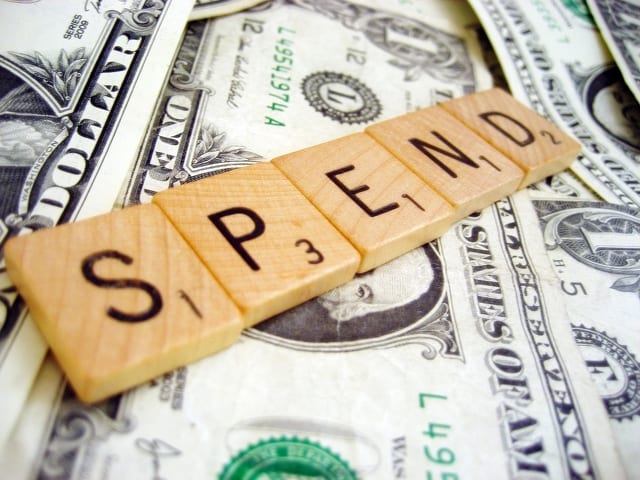I had an interesting conversation Tuesday morning which centered on emotions versus logic.
This battle happens in many areas of life. For instance, I know my health is better when I run or exercise but yet I find it hard to get up and get going.
Logically, there is no reason I should not exercise but emotionally, it has never been a big draw in my life. Sitting reading a book sounds much nicer. One of the most important areas where emotion and logic can lead to bad decisions is financially.
One thing I see quite frequently are families that try to ‘keep up with the Joneses.’ In the United States, we have a bad habit of coveting others’ goods or lifestyles.
With the preponderance of Reality Shows (think Real Housewives) and Social Media, more opportunities are out there to feel you need to live up to what others are doing or have. A friend commented to me about how great my life looked on Facebook and I said, ”Most people put the fun times on Facebook. I don’t put the times that I am working the weekends or evenings.”
We both came to the realization that Facebook along with Instagram and other social media sites offer a version of reality but not the whole story. This is the way we should look at posts as well as ‘keeping up with the Joneses.’ The trip to Alaska or the Prada bag may have been splurge or a gift.
The neighbor or friend who always looks to have the latest and greatest may not have any savings, retirement or have mountains of credit card debt. They may not have children, have a smaller house or received an inheritance.
Life and financial health are the combination of all the choices that we make in life. Instead of say, paying a $100 cable bill, maybe you would rather have an emergency savings built up each month. Cut back on your cable or move to Netflix and put the cost savings into a bank savings account.
Do you go to Starbucks three times a week? Maybe cut back to three times a month and put the cost savings into retirement. Take stock of the financial choices that you make. Do you really need the big house (or the big mortgage that goes with it)?
Do you need to buy that fifth Thomas the Tank Engine toy for your child or would it be better to put the $25 into a College Plan? One gives immediate gratification but long-term will end up in the toy bin forgotten, while the other will provide for a brighter future for your child. The fact remains that emotion sometimes leads to short-term happiness but long-term pain.
Warren Buffett once famously said, “Be fearful when others are greedy and greedy when others are fearful.” Emotions can be the enemy of intelligent investing. The perfect time to buy? March 2009 after the real estate bubble burst and the taxpayers had recently bailed out AIG. Fear was the order of the day.
What was a bad day to buy stocks? The Dow was hitting 10,000 and ‘everything was different’ now that the internet had changed the game for good. In March 2000 the tech heavy Nasdaq reached its peak. One thing the tech bubble taught us was that diversification was good. It might have felt wonderful to be fully invested in Qualcomm, Netscape or any of the other dot coms that now cease to exist when they were going up but logic says having all your eggs in one basket is a bad idea.
Consider your company retirement plan, are you over-weighted in your company stock? This is akin to my resistance to exercise. I know what is good for me but sometimes I am too lazy to do it. Having your retirement AND employment tied to one company is not a good idea, no matter how good a company it is.
Think of all the employees of Enron who saw their retirement accounts dwindle to next to nothing because they failed the basic test of diversification. (If you don’t remember the Enron (ENE) debacle, take a moment to google it. It is a lesson in too good to be true).
Finally, the emotions that fraudsters use to sway people into action are greed and fear. I recently talked with a client who had read a newsletter that predicted a bloody Wednesday in September 2015, which would devastate the markets and only the person writing the newsletter knew the best way to prepare. Beware of those bearing gifts: when googled, it was revealed that the person who wrote the newsletter had been convicted of fraud over misleading investors in a newsletter.
In short, always take time to check your emotions when making a purchase, placing a trade or taking advice. If pressure is being placed, step back and walk away. If something is too good to be true, check the small print. Your financial life is a combination of all your choices. Take the time to make the right ones. If you have difficulty making them yourself, consult with a reputable advisor.



